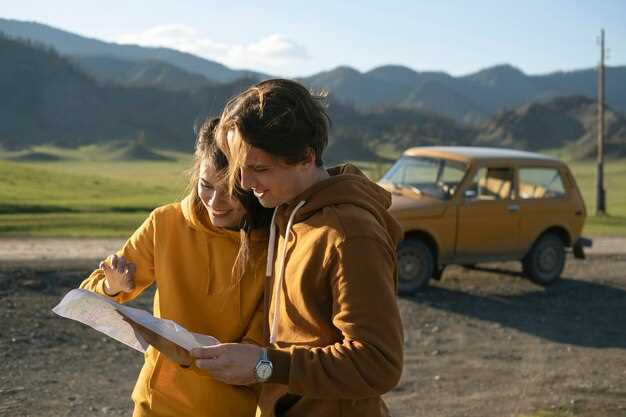
Classic cars are not just vehicles; they represent a passion, a lifestyle, and a rich history that draws many enthusiasts into their captivating world. For those who find themselves enamored with these timeless machines, joining a club can be an invaluable experience that enhances their appreciation and understanding of classic automobiles. However, the challenge lies in successfully finding the right club that aligns with one’s interests and goals.
When selecting a classic car club, it’s imperative to consider the specific focus of the group. Some clubs cater to particular makes or models, while others promote a broader spectrum of classic cars. Understanding what type of community you are seeking can greatly influence your experience as an enthusiast. By connecting with others who share a similar passion for classic cars, you not only gain access to valuable resources but also form lasting friendships that can enhance your journey into the world of automotive history.
Additionally, the activities offered by these clubs can vary significantly. From organizing car shows and restoring projects to hosting rallies and workshops, each club provides unique opportunities to engage with classic vehicles and improve your knowledge. In this article, we will delve into the essential factors to consider when choosing the right club for classic car enthusiasts, ensuring that your passion for these remarkable cars flourishes in an environment that is both supportive and inspiring.
Identifying Your Interests: Types of Classic Car Clubs

When considering joining a classic car club, it’s essential to identify your interests as they can significantly guide your choice. Classic car clubs generally fall into several categories, each catering to different aspects of classic car enthusiasm.
One of the most common types is the general classic car club, which welcomes all classic car owners regardless of make or model. These clubs typically organize events such as car shows, rallies, and social gatherings, providing members with the opportunity to share their passion and knowledge about classic cars.
Another category is make-specific clubs, which focus on specific brands or models of classic cars. These clubs are perfect for enthusiasts who are particularly passionate about a certain manufacturer, as they often provide specialized resources, technical support, and networking opportunities with other owners of the same vehicles.
Performance-focused clubs attract those who enjoy restoring and modifying classic cars for enhanced performance and driving experience. Members often share tips on modifications and performance upgrades, making these clubs ideal for those looking to take their classic cars to the next level.
Restoration clubs cater to individuals who enjoy the art of restoring classic cars to their former glory. These clubs emphasize skills in restoration techniques and offer workshops, guidance, and camaraderie among fellow restorers seeking to preserve automotive history.
Lastly, vintage racing clubs appeal to those who are passionate about racing classic cars. These clubs usually organize competitive events and track days, allowing members to experience the thrill of racing their classic cars in a controlled environment.
Choosing the right classic car club requires understanding your specific interests and goals within the classic car community. By identifying what you are most passionate about, you can find a club that enhances your enjoyment and knowledge of classic cars.
Evaluating Membership Benefits and Club Activities
When finding the right club for classic car enthusiasts, it’s crucial to evaluate the membership benefits and activities that each organization offers. Membership in a classic car club can provide unique opportunities that extend beyond just owning a vintage vehicle.
One of the primary benefits of joining a classic car club is access to exclusive events. Many clubs host car shows, cruises, and rallies that allow members to showcase their vehicles and connect with fellow enthusiasts. These gatherings can also serve as valuable networking opportunities, where members can share tips, restoration techniques, and experiences.
Furthermore, evaluating educational resources is essential. Some clubs offer workshops and seminars that focus on various aspects of classic car maintenance, restoration, and history. Joining a club with strong educational support can significantly enhance your knowledge and skills as a classic car owner.
In addition to events and education, many clubs provide members with access to specialized resources, such as discounts on parts, tools, and services. This can lead to substantial savings when maintaining or restoring classic vehicles. It’s worth investigating what partnerships or sponsorships a club has with local businesses that cater to classic car enthusiasts.
Another important aspect to consider is the club’s community and culture. A supportive and active membership can make a significant difference in your experience. Engage with current members through forums or social media to gauge the camaraderie and enthusiasm within the club. A club with a vibrant community fosters connections and friendships that last beyond car shows and meetings.
Lastly, consider the geographic coverage of the club’s activities. Some clubs are focused on local regions, while others may have national or international scope. If travel is feasible for you, a broader network might offer greater benefits. However, a local club may provide more frequent opportunities to participate in events.
In summary, when choosing a classic car club, thorough evaluation of membership benefits and club activities is essential. By focusing on events, educational resources, member community, and geographic reach, you can find the best fit for your classic car journey.
Connecting with Local Scenes: Finding Clubs Near You

For classic car enthusiasts, engaging with a community is essential for both sharing knowledge and celebrating a shared passion. Finding the right club in your local area can significantly enhance your experience. Start by researching online platforms and social media groups dedicated to classic cars, where members often share information about clubs and events. Websites like Meetup and Facebook groups can be valuable resources in locating enthusiasts nearby.
Additionally, visit local car shows and exhibitions, as these gatherings often showcase various clubs. Speaking directly with fellow attendees can offer insights into which club aligns with your interests, be it vintage restorations, specific brands, or even racing. Don’t hesitate to participate in community forums that focus on classic vehicles, as they can provide recommendations and valuable contacts.
Another effective way to find clubs is through local automotive shops and parts suppliers. Many of these businesses have connections with enthusiast groups and can point you toward clubs that meet regularly. Remember, visiting a club’s meetings or events can help you gauge the atmosphere and see if it’s the right fit for your classic car journey.
Lastly, consider contacting national or regional classic car organizations, as they often have databases of member clubs across various locations. This can streamline your search, connecting you with passionate individuals and helping you delve deeper into the classic car culture that thrives in your community.

